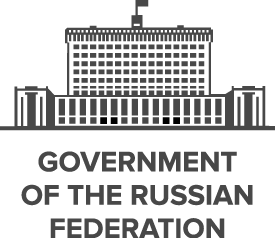Founded in the 12th century, the Principality of Muscovy was able to emerge from over 200 years of Mongol domination (13th-15th centuries) and to gradually conquer and absorb surrounding principalities. In the early 17th century, a new ROMANOV Dynasty continued this policy of expansion across Siberia to the Pacific. Under PETER I (ruled 1682-1725), hegemony was extended to the Baltic Sea and the country was renamed the Russian Empire. During the 19th century, more territorial acquisitions were made in Europe and Asia. Defeat in the Russo-Japanese War of 1904-05 contributed to the Revolution of 1905, which resulted in the formation of a parliament and other reforms. Repeated devastating defeats of the Russian army in World War I led to widespread rioting in the major cities of the Russian Empire and to the overthrow in 1917 of the imperial household. The communists under Vladimir LENIN seized power soon after and formed the USSR. The brutal rule of Iosif STALIN (1928-53) strengthened communist rule and Russian dominance of the Soviet Union at a cost of tens of millions of lives. After defeating Germany in World War II as part of an alliance with the US (1939-1945), the USSR expanded its territory and influence in Eastern Europe and emerged as a global power. The USSR was the principal adversary of the US during the Cold War (1947-1991). The Soviet economy and society stagnated in the decades following Stalin’s rule, until General Secretary Mikhail GORBACHEV (1985-91) introduced glasnost (openness) and perestroika (restructuring) in an attempt to modernize communism, but his initiatives inadvertently released forces that by December 1991 splintered the USSR into Russia and 14 other independent republics.
Following economic and political turmoil during President Boris YELTSIN's term (1991-99), Russia shifted toward a centralized authoritarian state under the leadership of President Vladimir PUTIN (2000-2008, 2012-present) in which the regime seeks to legitimize its rule through managed elections, populist appeals, a foreign policy focused on enhancing the country's geopolitical influence, and commodity-based economic growth. Russia faces a largely subdued rebel movement in Chechnya and some other surrounding regions, although violence still occurs throughout the North Caucasus.
Russia is a semi-presidential federation.
Members:
Resources
Displaying 871 - 875 of 1046Ministerial Decree No. 1435 validating the Regulation on Federal State Supervision in the Sphere of Geodesy and Cartography.
This Ministerial Decree establishes the modalities of carrying out federal state supervision in the sphere of geodesy and cartography (geodetic survey) by the officials of Federal State Supervision in the Sphere of Geodesy and Cartography.
Regional Law No. 68-ZS amending Regional Law No. 8-ZS “On regulation of some issues related to turnover of agricultural land”.
Article 3.1 shall be amended to add the following wording: “Dispute settlement related to dimensions of agricultural land area and location of the boundaries thereof shall be resolved in court”.
Amends: Regional Law No. 8-ZS “On regulation of some issues related to turnover of agricultural land”. (2007-07-10)
Regional Law No. 8-ZS “On regulation of some issues related to turnover of agricultural land”.
This Regional Law regulates some issues related to turnover of land parcels and land shares in common property concerning agricultural land. Maximum land area of agricultural land that can be allotted to a single natural of legal person on the territory of a municipal district shall be 10 percent of the total available agricultural land. Minimum land area of agricultural land allotted to production of agricultural commodities shall be 70 ha.
Regional Law No. 12-ZS “On plenary powers of regional state bodies related to land tenure and management of land parcels”.
This Regional Law establishes plenary powers of regional state bodies as regards land tenure and management of public land parcels or land with unidentified ownership. Authorized state regional institution in the sphere of land management shall carry out the following plenary powers: (a) preparation of documentation for delimitation of land ownership; (b) tenancy and management of public land; and (c) shall be a Party on behalf of the regional administration to purchase and sale, and also lease or land tenancy contracts on behalf of the regional administration.
Regional Law No. 147-ZS “On minimum and maximum land parcels of public and municipal land that can be allotted to citizens for gardening and horticulture”.
This Regional law establishes that minimum land parcels of public and municipal land that can be allotted to citizens for gardening and horticulture shall be 0,03 ha, while maximum land parcels of public and municipal land that can be allotted to citizens for gardening shall be 0,15 ha and for horticulture 0,25 ha.
Amended by: Regional law No. 142-ZS amending Regional Law No. 147-ZS “On minimum and maximum land parcels of public and municipal land that can be allotted to citizens for gardening and horticulture”. (2011-11-07)


